The organised labour has threatened to stage a protest on Monday if Adelabu fails to heed their calls.
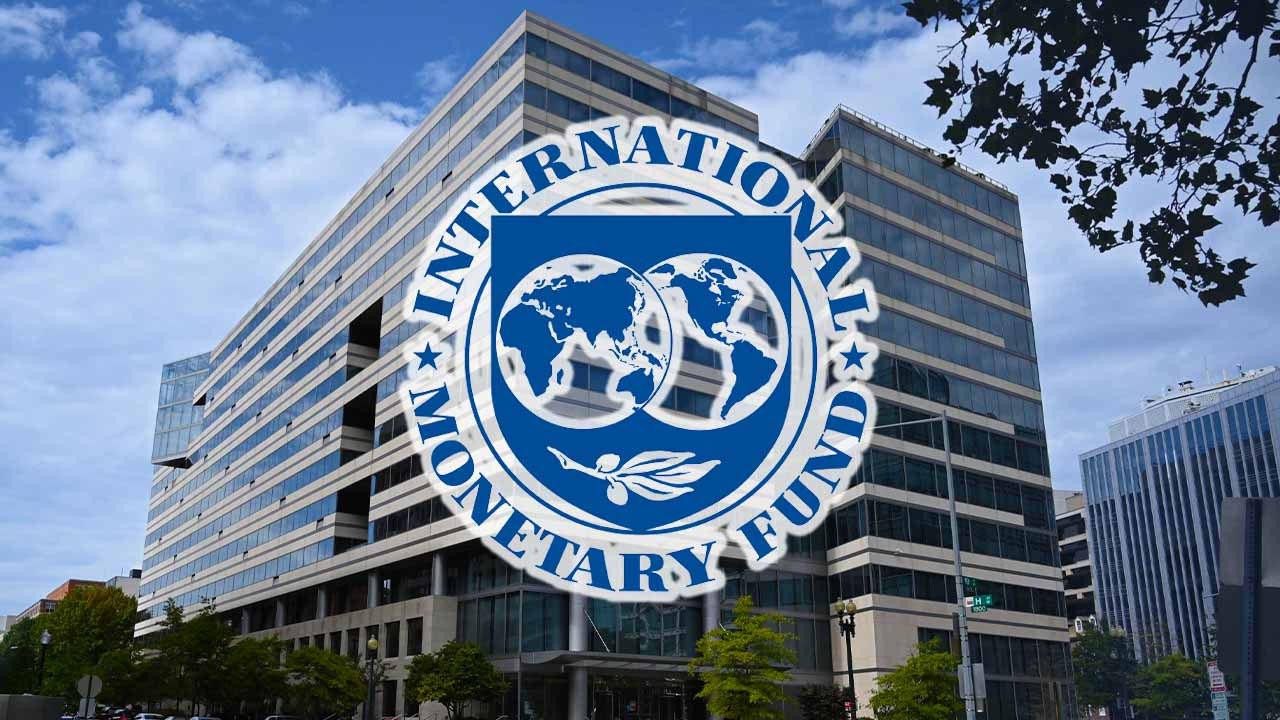
IMF urges Nigeria to remove electricity subsidy
The International Monetary Fund has warned the Nigerian government to remove what it called implicit fuel and electricity subsidies.
In a report published recently by the IMF, the organisation told Nigeria that the subsidies would guzzle three per cent of the nation’s Gross Domestic Product in 2024 as against one per cent in the year before.
According to the report, the IMF commended the Federal Government for, among other things, phasing out “costly and regressive energy subsidies”, saying this was critical to creating fiscal space for development spending and strengthening social protection while maintaining debt sustainability.
President Bola Tinubu’s administration removed fuel subsidies during his inauguration on May 29, 2023.
IMF noted, however, that “adequate compensatory measures for the poor were not scaled up promptly and subsequently paused over corruption concerns. Capping pump prices below cost reintroduced implicit subsidies by end-2023 to help Nigerians cope with high inflation and exchange rate depreciation.”
The body also acknowledged that the price of electricity had tripled for high-use premium consumers on Band A feeders, 15 per cent of the 12 million customers who account for 40 per cent of electricity usage.
As Nigerians agitate for the reversal of the Band A tariff from N206.80 per kilowatt-hour to N68, IMF submitted that “the tariff adjustment will help reduce expenditure on subsidies by 0.1 per cent of Gross Domestic Product, while continuing to provide relief to the poor, particularly in rural areas”.
The IMF advocated that “once the safety net has been scaled up and inflation subsides, the government should tackle implicit fuel and electricity subsidies”.
It warned, “With pump prices and tariffs below cost-recovery, implicit subsidy costs could increase to 3 per cent of GDP in 2024 from 1 per cent in 2023. These subsidies are costly and poorly targeted, with higher income groups benefiting more than the vulnerable”.
The IMF reechoed that “as inflation subsides and support for the vulnerable is ramped up, costly and untargeted fuel and electricity subsidies should be removed, while, e.g., retaining a lifeline tariff”.
It projected that the implicit fuel subsidy could gulp as high as N8.4tn in 2024 from N1.85tn in 2023, N4.4tn in 2022, N1.86tn in 2021 and N89bn in 2020.
The electricity subsidy being paid to customers under Band B, C, D, and E was projected to stand at N540bn by the end of 2024.
The PUNCH reports that the Nigerian National Petroleum Company and the Minister of State for Petroleum (Gas), Heineken Lokpobiri, have repeatedly debunked claims that the Federal Government was paying fuel subsidies through the back door.
Meanwhile, the IMF’s call for the removal of electricity subsidy is coming amid protests from Nigerians who are calling on the Minister of Power, Adebayo Adelabu, to return the Band A tariff to the status quo.
The organised labour has threatened to stage a protest on Monday if Adelabu fails to heed their calls.
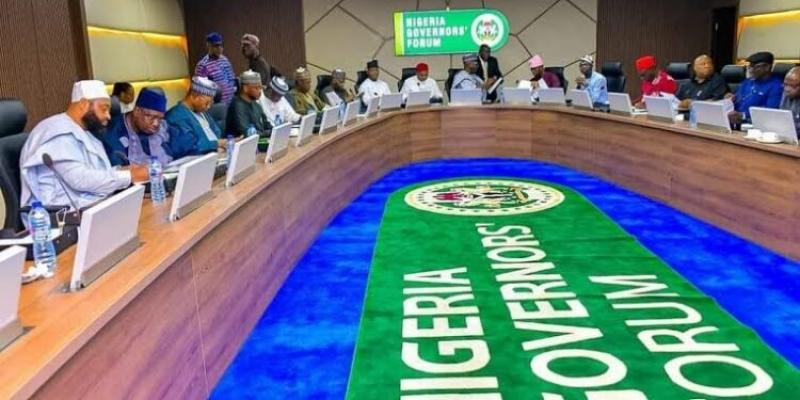
Why governors’ forum is silent on Rivers emergency, by DG
The Nigeria Governors’ Forum (NGF) yesterday attributed its neutral position on the recent declaration of a state of emergency in Rivers State to the need to steer clear of taking positions that may alienate members with varying political interests.
Taking positions on contentious partisan issues, the NGF said, would not augur well for it, especially in view of its past experience in fundamental division.
Notwithstanding, the declaration of the state of emergency by President Bola Tinubu yesterday generated more kudos and knocks from across the country.
Special Adviser to the President on Senate Matters, Senator Basheer Lado, said the action of the president was meant to ensure protection of lives and restoration of law and order in the state, while the President’s Special Adviser on Media and Public Communications, Sunday Dare, said his principal was required to “avert needless harm and destruction .”
National Publicity Secretary of the ruling All Progressives Congress (APC), Felix Morka, said Tinubu, by his action, cleared what had manifested as a constitutional crisis in Rivers state.
But former President Goodluck Jonathan saw it from a different perspective.
READ ALSO:
He described “abuse of office and power by the three arms of government in the country“ as a dent on Nigeria’s image.
The NGF, in a statement by its Director General Abdulateef Shittu, said it is essentially “an umbrella body for sub-national governments to promote unified policy positions and collaborate with relevant stakeholders in pursuit of sustainable socio-economic growth and the well-being of the people.”
It added: “As a technical and policy hub comprising governors elected on different platforms, the body elects to steer clear of taking positions that may alienate members with varying political interests.
“In whatever language it is written, taking positions on contentious partisan issues would mean a poor sense of history — just a few years after the forum survived a fundamental division following political differences among its members.
“Regardless, the Forum is reputed for its bold positions on governance and general policy matters of profound consequences, such as wages, taxes, education and universal healthcare, among others.”
It asked for “the understanding of the public and the media, confident that appropriate platforms and crisis management mechanisms would take care of any such issues.”
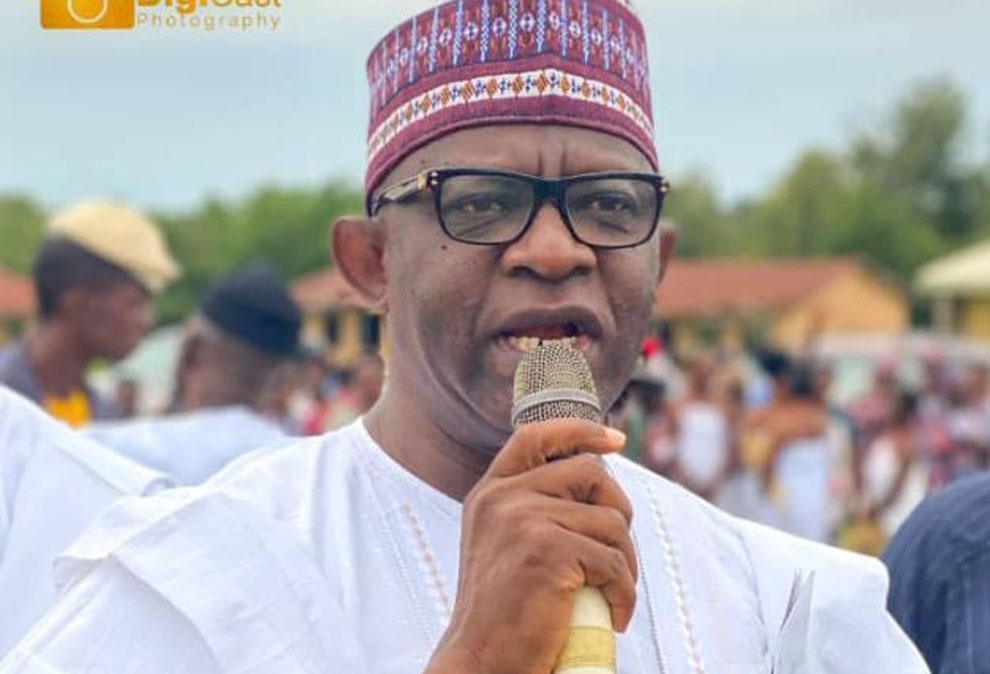
Rivers: Tinubu acted to save state, economy, says Karimi
Chairman of the Senate Services Sunday Karimi has hailed President Bola Tinubu for the decision to declare a state of emergency in Rivers State.
He told reporters on Friday in Abuja that the President acted in the best interest of the State and Nigeria, having taken his decision in compliance with the Constitution.
“No President or government worth a name, will fold its arms and watch a political situation deteriorate to what we saw unfolding in Rivers State.
“We saw that bombing of pipelines had begun, and the security situation was getting worse with the tension everywhere”, Karimi stated.
Karimi, who represents Kogi-West on the ticket of the All Progressives Congress (APC), recalled the “fatherly role” Tinubu had played in the crisis since 2023 in a bid to get the Minister of the Federal Capital Territory (FCT), Nyesom Wike, and suspended Governor Siminalayi Fubara to reach an understanding, to no avail.
He explained: “We were all here in 2023 when Mr President called that truce meeting at the Aso Rock Villa. There was the eight-point agenda for settlement reached between the factions.
“When Nigerians expected that progress should be made to achieve peace, things started deteriorating considerably to a point where the governor demolished the House of Assembly building and administered the state with only three legislators.”
READ ALSO:
Karimi observed that with the recent judgment of the Supreme Court, which gave the upper hand to the 27 lawmakers loyal to the camp of the FCT Minister, matters merely got worse in the State as the lawmakers were set to impeach the Governor.
“What did you expect would be the implications? There would have been more destruction, killings and economic losses for the country.
“With the bombings that had already started, it was a matter of time before the whole state would be engulfed in flames. No responsible President would sit, arms folded, and allow that to happen “ he added.
The senator further argued that it took “painstaking efforts” by the administration to raise daily crude oil production to around 1,800 barrels, noting that Nigeria’s economy was already “witnessing a rebound under the renewed hope projects of the government.”
“Allowing the situation in Rivers to get worse before he would act, wouldn’t have helped the state or Nigeria as a country in any way.
“Mr. President intervened at the right time, and his actions are covered by law,” he said.
Karimi also spoke on the emergency declaration in Borno, Yobe, Adamawa and a couple of other states by former President Goodluck Jonathan without removing the Governors from office or suspending the state assemblies.
According to him, the case with those States was not generated by political crises but rather security concerns.
“So, I will advise those comparing the two scenarios to remember that one was purely about security threats resulting from the insurgency caused by Boko Haram, while that of Rivers is clearly political.
“It was the proper thing to do to suspend the political actors in the two factions to allow for tensions to diffuse. Nigerians should appreciate the President for the action he has taken so far,” he stated.
Sen. Karimi also noted that there was no cause for alarm as the National Assembly had indicated that the emergency rule could be reviewed as soon as there were signs that things could quickly normalise in Rivers State.
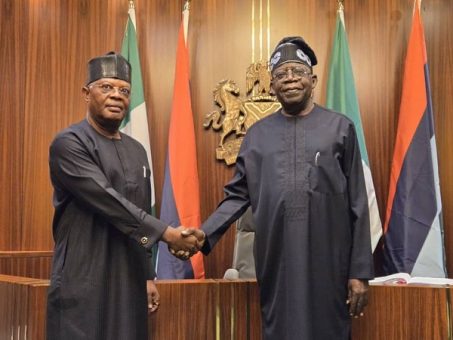
Just in: Tinubu swears in Rivers Sole Administrator Ibok-ete Ibas
President Bola Tinubu has sworn in Vice Vice Admiral Ibok-ete Ibas (Retd.) as the Sole Administrator of Rivers State.
The administrator was sworn in on Wednesday after a short meeting with the President.
Tinubu announced the appointment of the retired naval chief at a nationwide broadcast on Tuesday, when he declared a state of emergency in Rivers State and suspended Governor Siminalayi Fubara, Deputy Governor, Ngozi Odu, and the state House of Assembly members.
The President said his decision was based on Section 305 of the 1999 Constitution, saying he could not continue to watch the political situation in Rivers escalate without taking concrete action.
The suspension of Fubara and other elected representatives has been rejected and condemned by many eminent Nigerians, legal luminaries, groups such as Atiku Abubakar, Peter Obi, Femi Falana, the Labour Party (LP), the Peoples Democratic Party (PDP) and the Nigerian Bar Association.
However, the emergency rule has been praised by the pro-Nyesom Wike Assembly led by Martins Amaewhule, accusing Fubara of contravening the Supreme Court ruling on the political situation in the state.
Ibas was the Chief of Naval Staff from 2015 to 2021.
He is from Cross River State where he had his early education.
The new sole administrator went to the Nigerian Defence Academy in 1979 from where he proceeded to have a successful career in the Navy, rising through the ranks to the very top.
He is a member of the Nigerian Institute of International Affairs (NIIA) and the Nigerian Institute of Management.
President Muhammadu Buhari who appointed him as Chief of Naval Staff conferred him with the National Honour of Commander of the Federal Republic (CFR) in 2022.
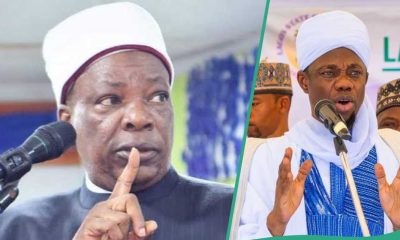

Attack on Mufty of Ilorin: Onikijipa Family Charges Stakeholders to Call Sheikh Habibullahi Al-Ilory to Order


Court refers Ojukwu property case to alternative dispute resolution


Nigerian doctor pioneers W’Africa first robotic prostate cancer surgery


CBN rejects Osun nomination of ex-Aregbesola’s commissioner as bank director
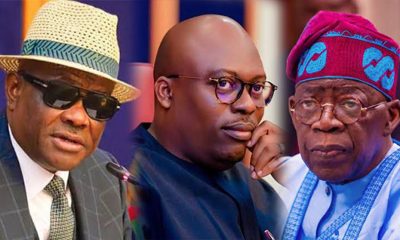

Rivers: Presidency reveals security intelligence leading to emergency rule
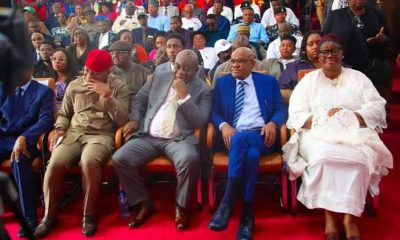

Fubara: Supreme Court reacts to photo of Justice Agim with Wike
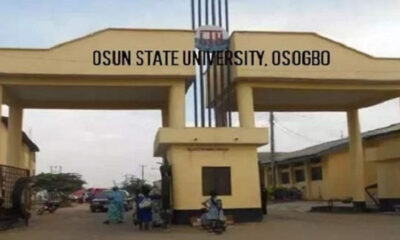

UNIOSUN mourns as 5 students die in auto crash
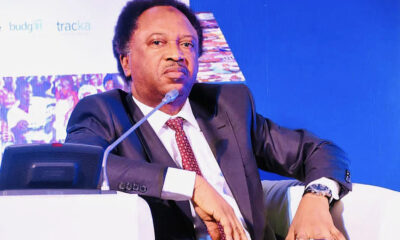

Shehu Sani faults senators taking voice vote objection to media